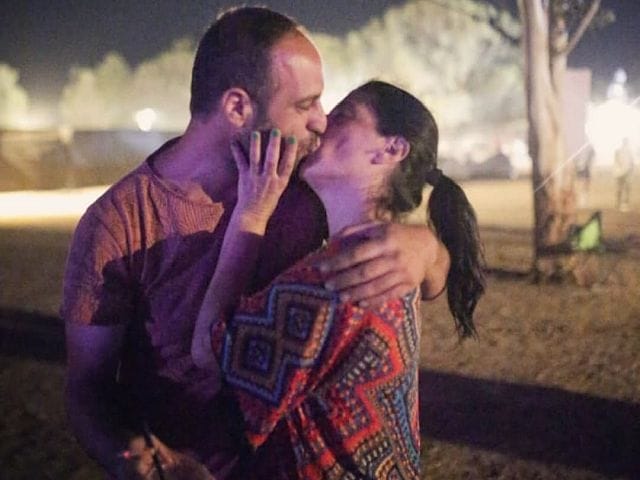In the afternoon of October 7, shortly after the Hamas attack on Israel, militants had taken Israelis hostage in at least two settlements. In Ofakim, terrorists held spouses Rachel and David Edri hostage in their home for 22 hours until Yamam destroyed the militants and freed the family. The situation in Be'eri remained unclear for a very long time. The media reported that terrorists were holding about 50 people hostage in the kibbutz dining hall. Later, it turned out there were 15 hostages. However, the official cause of the death of 13 of them, including two children, is still unknown.
The following facts have been officially confirmed: for about five hours, dozens of terrorists held 15 hostages, including 12-year-old twins Liel and Yannai Hetzroni, in Pesi Cohen's house in Kibbutz Be'eri. Out of the 15 hostages, only two women survived: Yasmin Porat and Hadas Dagan. Tal Katz, Yasmin's boyfriend, and Adi Dagan, Hadas' husband, died.
On October 11, Yasmin Porat gave her first interview on Channel 12 in the Sivan Rahav-Meir's program. In this interview, Yasmin suggests for the first time that the hostages may have been killed not by Hamas militants but by the gunfire from the police and the army. In particular, in this interview, Porat first mentions that an IDF tank fired at the house.
On October 26, the host of Channel 12's Uvda (Fact), Ilana Dayan, interviewed Brig. Gen. Barak Hiram, who commands the IDF's 99th Division. In this interview, Hiram is named as the officer who commanded the operations in Be'eri. During the interview, Hiram says, "At some point, Nissim Hazan, the unit commander in my Division, came. He commanded the tank that arrived first in the settlement. I permitted him to shoot at the houses to stop the terrorists."
Hiram also tells in the program that the national counter-terrorism unit Yamam, operating in one of the kibbutz areas, found one of the hostages and concluded that terrorists were holding hostages in one of the houses.
"A negotiating team from the General Staff arrived at the scene, trying to contact them," the general recounts in the interview, "but they responded with RPG fire, and I ordered to storm to try to save the hostages. I think there were about 20 hostages there, and Yamam fighters managed to save four; the terrorists cold-bloodedly shot the rest. Later, we found 26 militants there, as well as eight bound and shot children."
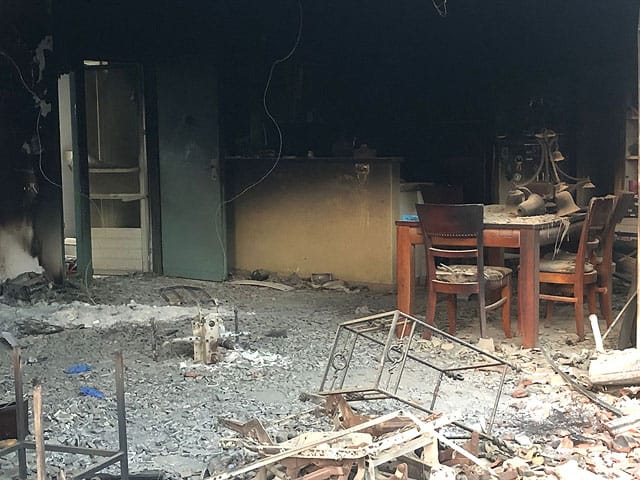
In reality, there was no recorded incident in Kibbutz Be'eri where the bodies of eight bound and shot children were found. The IDF spokesperson hasn't commented on the Uvda interview with Hiram.
Alla Gavrilova asked Yasmin Porat, one of the two survivors among the 15 hostages in Be'eri, to share her recollections of the events of that day.
Where were you when the war broke out on October 7?
I love trance music and often attend outdoor raves on weekends. There were several good festivals during that weekend in Israel, but Tal and I wanted to attend Nova because of the excellent musical program. We received the coordinates only on Friday evening and set out immediately. We didn't really know where we were going. We arrived around 12:30 AM and danced all night. It was wonderful. At dawn, I decided to go to the car to freshen up and grab some things. Tal went with me. When we were about to return, rockets started flying towards us. It was around 6:25 AM. We were lucky then. A few minutes later, the music in the distance stopped, and a policeman announced through the microphone that, due to the shelling, everyone should evacuate. I realized that the crowd would rush to the cars, and we would end up in a terrible traffic jam, so I persuaded Tal to leave right away. Several dozen people did the same in the parking lot beside us. So, we were among those who managed to leave the festival before the massacre began in the parking lot.
Around 6:30 AM, we were approaching Be'eri. The shelling continued, and we saw a migunit near Be'eri, so we ran there. Other people were inside, too. We spent about 10 minutes there. Just as we got into the car and started moving, we saw two militants with AK-47s on the road, shooting in all directions. We turned towards Be'eri; the kibbutz was on our right, the gates were open, and we rushed there. We immediately entered a migunit on the street. Ten minutes later, we heard screams, went out, and saw members of the local self-defense unit shouting at us, "Terrorists are in the kibbutz, run." We jumped into the car and headed toward the gates, which turned out to be closed. We turned around and stopped in a large parking lot near the kibbutz's dining room.
What time was it?
Exactly 6:50 AM. There was no one on the street; everyone was hiding. We started knocking on doors, and only in the third house, they let us in.
Was it the house of Hadas and Adi Dagan?
Yes. A very nice elderly couple opened the door. They invited us to the living room, Adi made us coffee, and we introduced ourselves and talked about everything we had experienced. At the same time, they were receiving messages in the kibbutz group chat about the infiltration of terrorists. At half past eight, we locked ourselves in the safe room. From half-past eight in the morning until almost two in the afternoon, we sat there, watched the news, and read the group chats. That's how Tal and I learned about what happened after we left for the festival. We read pleas for help in the groups – from our friends at the festival, and Hadas and Adi received them from the kibbutz residents. At around 1:50 PM, Hadas said that judging by WhatsApp, the terrorists were already in the next street. Five minutes later, she said they were in the house next door. Tal and I climbed into the wardrobe. Hadas and Adi stayed by the door to hold the handle. The terrorists couldn't open the door for about 50 minutes. They knocked, shot, and tried to persuade the homeowners to come out, 'just to take a photo.' I was terrified; I had never been so scared in my life. I said goodbye to life and wrote farewell letters to my children. I had no signal then, and they would receive my messages later.
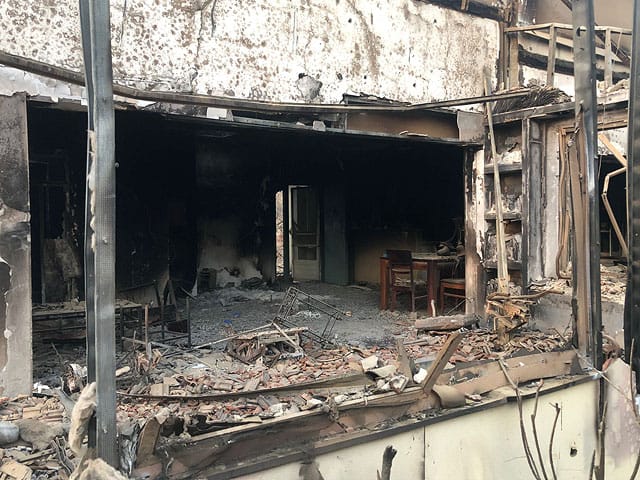
How old are your children?
14, 12, and 9. I'm sorry, but at this point, I always start to cry. So, around 14:50, there was an explosion, and the smoke was everywhere. I don't know what it was. Apparently, a grenade detonated. A minute later, the wardrobe opened, and I saw two AK-47s aimed at me. I expected a bullet in the head, but they didn't shoot at us. They pulled me out of the wardrobe and threw a towel over my shoulders. I was in a tank top; apparently, they deemed it immodest. I started screaming, "Don't kill me; I have three children." One of them approached me and said, "Look at me. I'm just like you. I'm an Israeli Arab from East Jerusalem. They won't kill you. They'll take us all to Gaza, and tomorrow, they'll return us to the Erez border crossing. Don't be afraid; they won't kill you."
Later, I found out that it was Suheib Abu Amer, a 22-year-old bus driver and a resident of Jerusalem, whom the terrorists captured in Re'im and made their translator. But at that moment, I didn't realize that he was also a hostage. They made Tal undress by that time and handcuffed his hands behind his back. They led all of us out of the house, and I couldn't believe my eyes. Dozens of terrorists were in the yard — all in bulletproof vests and full gear, all with green headbands. Later, I learned that there were 40 of them, and four different squads decided to unite at that moment. We found ourselves in the shared yard of four houses, and they led us to the terrace of Pesi Cohen. There were already other people. In total, I counted 15 people, including Suheib.
I sat at a table with the others and tried to get my act together. Since I understood that they didn't plan to kill me immediately, I calmed down and started examining the terrorists. At some point, one of the terrorists approached me and said in broken Hebrew, "Calm down. I'm a Muslim; Muslims don't kill women; no one will kill you." Then he left, and I didn't see him anymore.
In the end, one of their commanders, Hasan, consulted with the others and asked Suheib to take a phone from the hostages and call the police at 100. They gave the phone to me. Suheib translated Hasan's instructions to me. They commanded me to say that there were 50 hostages in the house. The dispatcher answered. I introduced myself and said where I was. I said there were Palestinians there who asked to facilitate their departure to Gaza along with the hostages. In total, I spoke with the police seven times, and all conversations were approximately the same.
Three times, the terrorists took me out of the house onto the road, and I had to shout, "Police! Are the police here?"
Why?
Because at three o'clock on October 7, Hamas, like us, couldn't believe that the army and the police had not yet surrounded the kibbutz. They really didn't think that, at that moment, they could freely take us to Gaza.
Why did the media report that the terrorists took hostages in the Be'eri dining room?
When I was talking to the police and trying to explain where we were, I explained that it was a complex of houses right behind the dining room. That's how journalists learned about it, I guess.
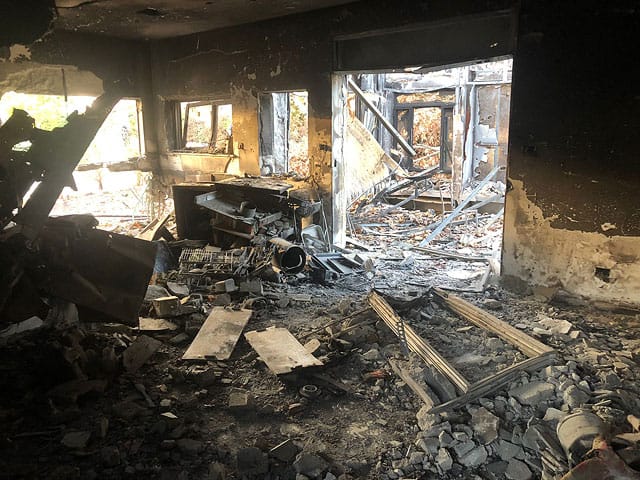
When did Yamam arrive?
At quarter to five. By then, I had already run out of the house onto the road several times with Hasan, the translator, and several other militants, and they communicated with me quite friendly.
Yamam fighters took the point right in front of the house; I even waved to them from the porch. All of us were happy because it seemed like we were saved. And then the shooting started.
Who started the fire?
I don't know. But a terrible shoot-out began. I ran into the house and threw myself on the floor in the living room between two sofas. Hasan, Suheib, and another hostage lay near me behind the kitchen counter. Some of the hostages were taken out into the courtyard before that. I didn't see the children then, but they screamed in terror. I screamed into the phone that Hasan threw me to make them stop shooting, but the gunfire didn't stop. It went on for about 30 minutes, and a bullet grazed my leg. My pants were soaking with blood, and for the first time since morning, I started crying and praying. At some point, I raised my head and caught Hasan's gaze, who tried to reassure me with a nod and a smile.
About ten minutes later, Hasan called me. The gunfire had just subsided. He was already undressed down to a tank top and shorts, talking on the phone with the police all this time. He grabbed me from behind by the neck, asking me to cover him with my body, and began leading me to the exit of the house. We went out, and the police and military were in front of me, shouting in Arabic. I catch a glimpse of Tal, Hadas, and Adi lying on the ground. I saw their eyes and realized they were alive. I saw other hostages, too. At that moment, six hostages were outside, and four were inside. I didn't see the children, but they were screaming. Everyone was alive.
Hasan loosened his grip, and I rushed to the soldiers. I saw them ordering Hasan to take off everything, and he remained completely naked.
I immediately told the police where the hostages were, how many terrorists there were, and so on. It was half past six. Until half-past nine, three hours, I hid behind police jeeps. Hasan shouted through his megaphone for his people to come out. Almost all the time, there was gunfire. And then, around seven in the evening, a tank approached the house. I ran to the Yamam fighters screaming, but they immediately told me that the tank wouldn't shoot at the house. And a few minutes later, the tank fired two or three shots. The ground shook, everything thundered, and then I heard cries that someone was wounded. I jumped out of the jeep and saw Hadas. It was awful. She was covered in blood and debris, barely standing on her feet. They put us in a car to take us to the kibbutz gate. I took her hand and asked what happened. "Adi died; it's his blood," she said. I asked her about Tal, but she said she knew nothing else. That's where this story ended for me.
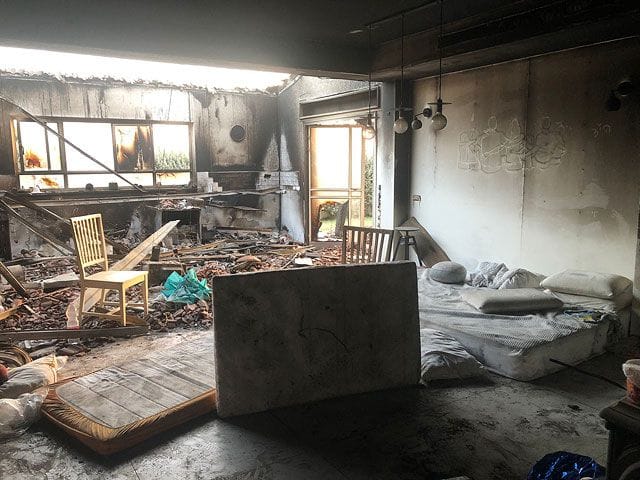
When did you learn about Tal's and the other hostages' deaths?
On Tuesday evening, his family was informed that he had been identified. Adi was buried only after 20 days. Everyone died except Hadas and me. Later, when she was discharged from the hospital, she told me, "We were lying under this porch for four hours. Then, the tank fired twice. When I opened my eyes, Adi had a big hole in his neck, Tal had stopped moving, and the children had stopped screaming."
Were you interrogated later?
Twice. Once, in Be'eri, on the spot, during the investigative experiment. As far as I understand, I will be the main witness when they try Hasan.
You speak of him with some warmth.
You're not the first one to notice that. I tell everyone that in the end, I am alive thanks to him, not thanks to our army. The army protected me only after he took me out of the house and thus saved me. I can't hate him. I can't feel sympathy for him either, but I can't hate him. I am grateful to him. I wouldn't be talking to you if it weren't for him.
Our editorial team reached out to the IDF press service for comment on Yasmin Porat's account and the interview given by Hadas Dagan to Сhannel 12's News after her hospital discharge, where she also asserts that the hostages died from IDF or police gunfire, not at the hands of the terrorists. Here is the complete response from the IDF press office: "At the moment, the IDF is focused on eliminating the threat from the terrorist organization Hamas. Questions of this nature will be addressed later."
We made the same inquiry to the police press office, which Yamam is a part of, but they declined to answer our questions and asked us to contact the IDF press office.
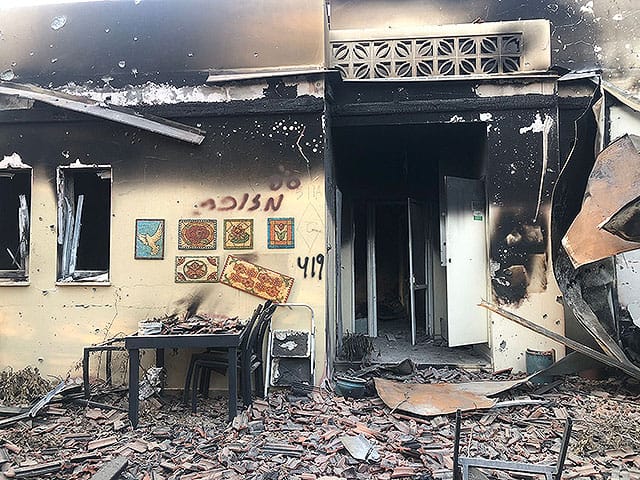
Relatives of the 13 deceased hostages continue to demand an investigation into the circumstances of their loved ones' deaths, but they have yet to receive any answers from the state.
